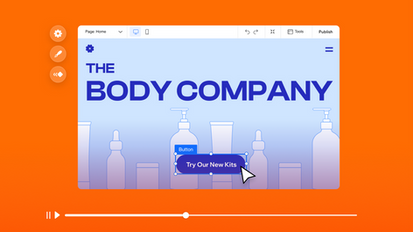Duties for Website Designer FAQ
A Beginner’s Guide to Duties for Website Designer
Duties for Website Designer
In today’s digital age, having a professional website is essential for any business or individual looking to establish an online presence. However, hiring a web designer can be costly, especially for those on a tight budget. Luckily, there are many inexpensive website builders available that enable you to create a professional-looking website without breaking the bank.

Duties for Website Designer Explained
Duties for Website Designer
What is a website builder?
A website builder is a tool that allows users to create and customize their own websites without needing to know how to code. These platforms typically offer a variety of templates and drag-and-drop tools that make it easy for even those with limited technical skills to create a website that fits their needs.
Inexpensive website builders offer affordable options for those looking to create a website on a budget. While some of these platforms may have limitations in terms of customization and functionality compared to more expensive options, they still provide a cost-effective way to get your website up and running quickly.
Features of inexpensive website builders
While the features offered by inexpensive website builders may vary, there are some common features that you can expect to find across many platforms:
1. Templates: Most website builders offer a selection of pre-designed templates that you can customize to create a unique look for your website. These templates are typically responsive, meaning they will look good on any device, from desktop computers to smartphones.
2. Drag-and-drop tools: One of the key features of website builders is their drag-and-drop functionality, which allows you to easily add and rearrange elements on your website without needing to know how to code.
3. E-commerce capabilities: Many website builders offer built-in e-commerce tools that make it easy to set up an online store and start selling products or services.
4. SEO tools: Some website builders include basic SEO tools that help you optimize your website for search engines, making it easier for potential customers to find you online.
5. Custom domain and hosting: Many website builders offer the option to purchase a custom domain and hosting directly through their platform, making it easy to get your website up and running quickly.
6. Customer support: Most website builders offer customer support to help you troubleshoot any issues or answer any questions you may have while building your website.
Best inexpensive website builders
There are many inexpensive website builders available, each offering different features and pricing options. Here are some of the best options for creating a professional website on a budget:
1. Wix: Wix is a popular website builder that offers a range of pricing plans, including a free option with basic features and paid plans starting at just $14 per month. Wix’s drag-and-drop tools and customizable templates make it easy to create a professional-looking website without any coding knowledge.
2. Weebly: Weebly is another user-friendly website builder that offers a free plan with basic features and paid plans starting at $6 per month. Weebly’s e-commerce tools and responsive templates make it a great option for small businesses looking to sell products online.
3. Squarespace: Squarespace is a visually stunning website builder that offers plans starting at $12 per month. With its modern templates and powerful customization options, Squarespace is a great option for creatives and small businesses looking to make a statement online.
4. WordPress.com: WordPress.com is a popular website builder that offers a free plan with limited features and paid plans starting at $4 per month. While WordPress.com is not as customizable as self-hosted WordPress.org, it still offers plenty of flexibility and functionality for those looking to create a professional website on a budget.
Web hosting providers offer various types of hosting plans and services to accommodate the needs of different websites. From shared hosting to dedicated servers, there are several options available for individuals and businesses looking to host their websites online.
Shared hosting is the most popular and affordable type of web hosting. With shared hosting, multiple websites are hosted on the same server, sharing its resources such as CPU, RAM, and storage space. This type of hosting is ideal for small websites with low to moderate traffic. However, shared hosting may not be suitable for websites that require high performance or resource-intensive applications.
VPS hosting, or Virtual Private Server hosting, is a step up from shared hosting. With VPS hosting, websites are hosted on virtual servers that mimic dedicated servers. Each website on a VPS server has its own dedicated resources, such as CPU, RAM, and storage space. This type of hosting is ideal for websites that require more control and flexibility but do not need a dedicated server.
Dedicated server hosting is the most powerful and expensive type of web hosting. With dedicated server hosting, websites have their own physical server dedicated solely to their needs. This type of hosting offers maximum performance, security, and customization options. Dedicated server hosting is ideal for websites with high traffic volumes, e-commerce websites, and large enterprises.
Cloud hosting is a relatively new type of web hosting that utilizes cloud computing technology to host websites on virtual servers. With cloud hosting, websites are hosted across multiple servers, providing scalability and flexibility. Cloud hosting is ideal for websites that experience fluctuating traffic levels or require high availability and uptime.
Managed hosting is a type of hosting service in which the web hosting provider manages and maintains the server infrastructure for the website owner. With managed hosting, users do not have to worry about server maintenance, security updates, or technical issues. This type of hosting is ideal for users who do not have the technical expertise or resources to manage their own servers.
There are several factors to consider when choosing a web hosting provider, such as reliability, speed, security, scalability, and customer support. Reliability is critical for ensuring that your website is always accessible to visitors. Speed is crucial for providing a positive user experience and improving search engine rankings. Security is essential for protecting your website from cyber threats and data breaches. Scalability is important for accommodating the growth of your website and handling increases in traffic. Customer support is vital for assisting with technical issues and ensuring that your website remains online and operational.
In addition to hosting services, web hosting providers often offer additional features and services, such as domain registration, website builders, one-click installation of applications, SSL certificates, email hosting, and backup services. These additional features can enhance the functionality and security of your website and simplify the management of your online presence.

How Duties for Website Designer Works
Duties for Website Designer
In conclusion, choosing the right website builder for your small business is essential to creating a professional and functional online presence. With the platforms mentioned above, you can easily design a beautiful website that showcases your products or services, drives traffic, and ultimately helps you grow your business. Whether you’re looking for a user-friendly interface, e-commerce capabilities, or customization options, these website builders have everything you need to succeed online.


